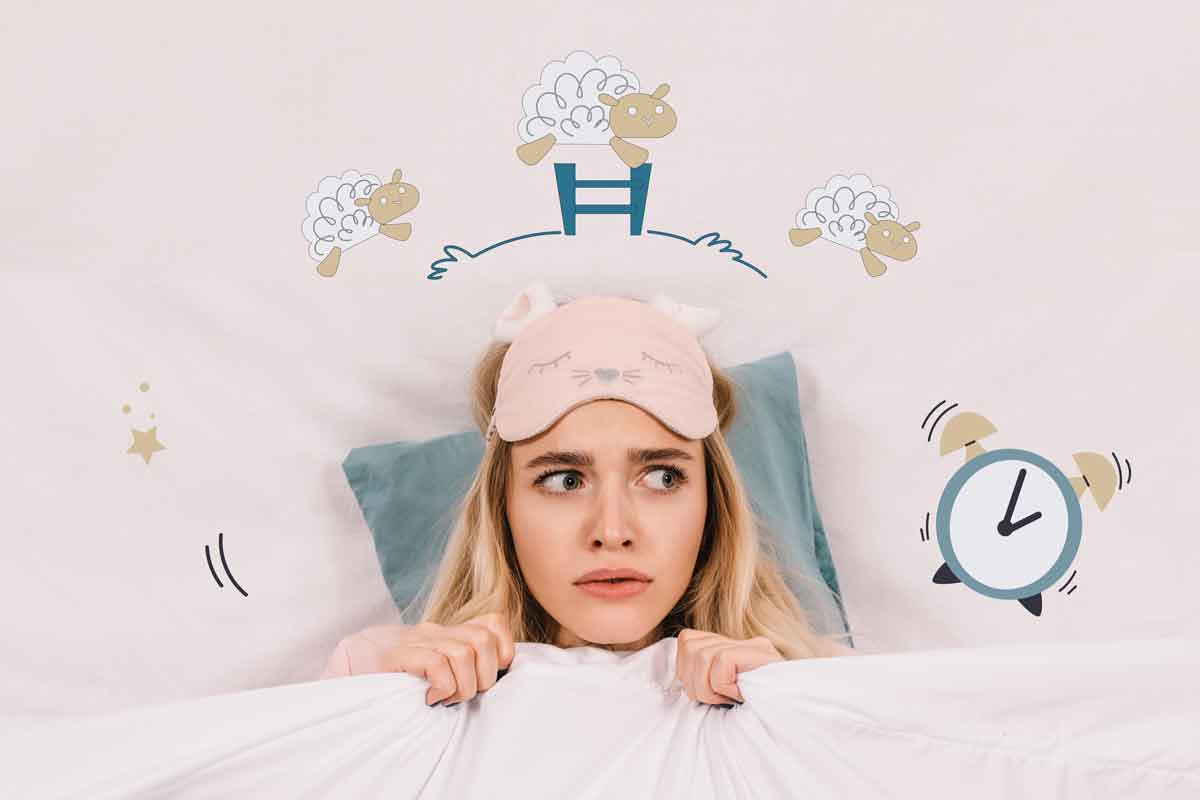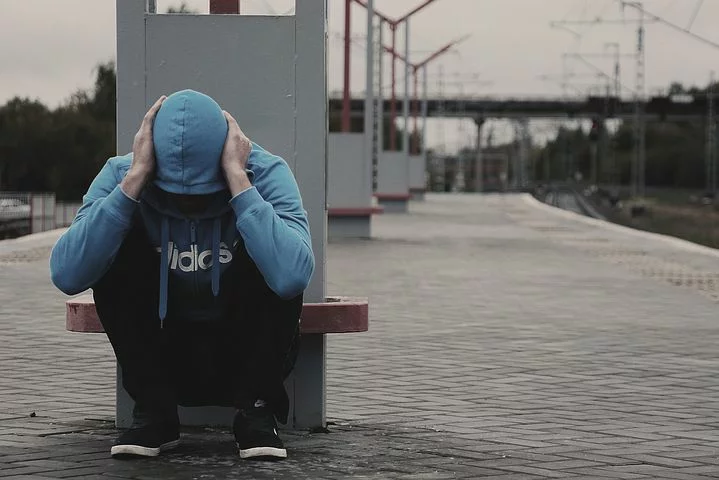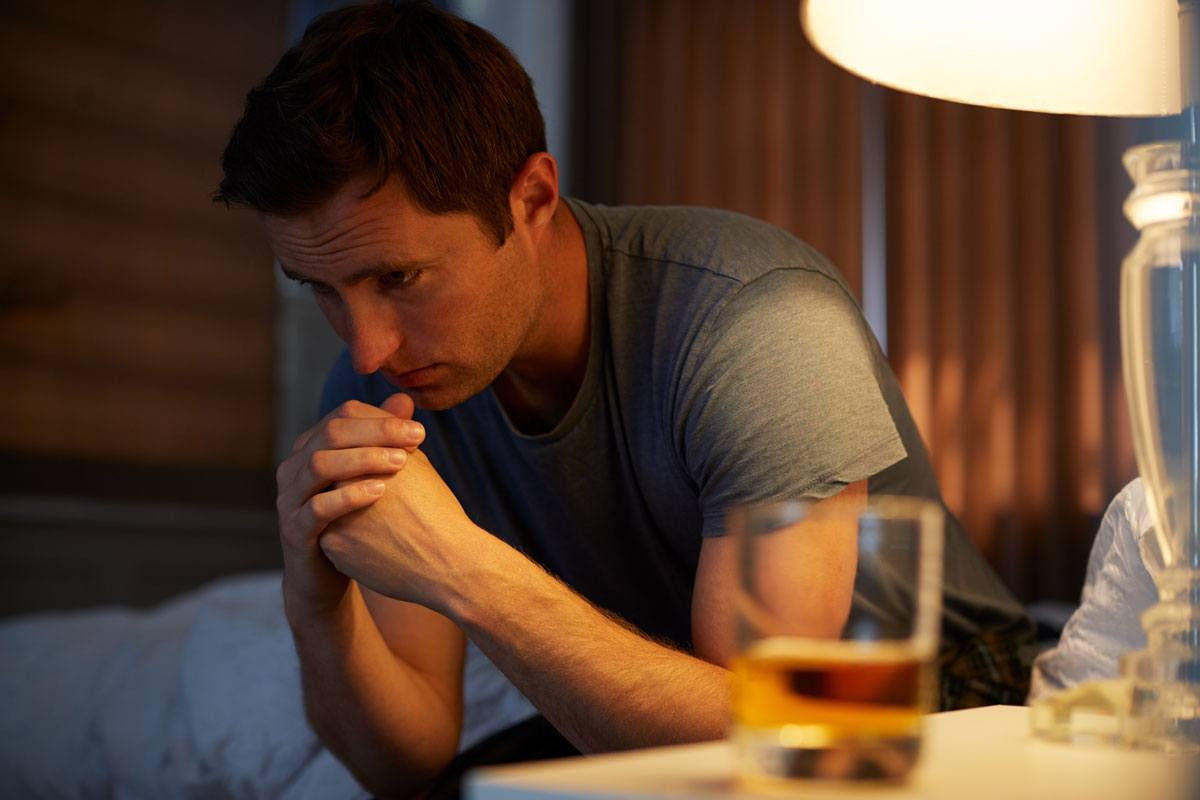It’s not always easy to separate the relationship between anxiety and depression. These two common mental health conditions often occur in tandem, and can present with similar symptoms. Understanding how they interrelate can help you get the right treatment.
You’ve felt out of sorts for a few months, going through an emotionally painful mix of sadness, worry, fear and hopelessness. You are exhausted and disheartened, wondering why you can’t just feel like yourself again. What’s going on? And where did it all come from?
Anxiety and depression are two of the commonly experienced mental health disorders, and they frequently occur at the same time, with around 60% of people with one of these conditions also experiencing symptoms of the other. Recent studies have even postulated that anxiety and depression may actually be two aspects of the same disorder, rather than separate conditions entirely.
What is clear about these two common mental health conditions is that they often feed into each other, and have overlapping symptoms. Understanding the relationship between anxiety and depression can help identify what you’re dealing with, and access the right type of treatment in order to start feeling better.
Understanding Depression and Anxiety
Of the two disorders, anxiety is generally more prevalent, with about twice as many people experiencing symptoms of anxiety. Anxiety tends to show up earlier in life than depression, beginning as early as right before adolescence. Typically for those that live with anxiety and depression as co-occurring disorders, anxiety symptoms will present before symptoms of depression.
Symptoms of Anxiety
- Difficulty managing concerns or stress, feeling overwhelmed by worry
- Fatigue
- Trouble concentrating, brain fog
- Feeling irritable or edgy
- Often feeling a sense of dread, doom, or panic
- Restlessness
- Sleep problems such as insomnia
Depression usually presents later in life, between adolescence to mid-adulthood. Symptoms typically last at least two weeks, but can go on for much longer. Symptoms include:
- Sadness, hopelessness, and emptiness
- Persistent irritability or anger
- Lowered energy levels; slowed speech and movement
- Lack of self-worth, feeling guilty or helpless
- Difficulty concentrating
- Lack of motivation or loss of interest in previously enjoyed activities
- Chronic fatigue
- Sleep troubles, such as insomnia or oversleeping
- Changes in weight and appetite
Depression and Anxiety: How Are They Linked?
Research has suggested that both depression and anxiety stem from an overactive stress response system, which in turn intensifies the brain’s emotional response, particularly the “fear center.” This increases the potential for negative responses to events and interactions.
For some people, the symptoms of one condition can spur the symptoms of the other. For example, if you are living with chronic anxiety, you’re often deeply worried about the future. You may be unable to shift your thoughts away from a variety of imagined negative outcomes, and this can in turn cause you to feel depressed and hopeless.
Depression and anxiety also often have overlapping symptoms, including unexplained pain or stomach distress, frequent irritability, changes in sleep patterns or appetite, difficulties with focus and memory, and changes in energy.
What are the Long-Term Effects of Co-Occurring Depression and Anxiety?
When anxiety and depression occur at the same time, it increases the possibility that the conditions will become chronic. This then raises the potential for serious impacts to personal relationships, professional outcomes, as well as elevates the risk for suicide. Those with co-occurring depression and anxiety were found to be a stunning 56 times more likely to end their life than those without either condition.
In addition to negative impacts to mental health, chronic co-occurring depression and anxiety can have considerable ramifications on physical health as well. This can include chronic pain in the form of headaches, migraines, back pain, and joint pain, as well as persistent sleep issues and gastrointestinal problems. Elevated levels of stress caused by these conditions can also result in increased risk of heart disease and stroke.
How Do You Treat Co-Occurring Depression and Anxiety?
Left untreated, depression and anxiety can have serious repercussions, and greatly limit the quality of your life. Seeking treatment can help you learn how to manage your symptoms, cope with stress, and get back to feeling healthy and well. Treatment options can include everything from psychotherapy, to medication, to wellness practices designed to lower stress and build both physical and mental health.
Cognitive behavioural therapy (CBT)
Cognitive behavioural therapy (CBT) is a type of talk therapy that has been proven effective in treating both depression and anxiety. CBT focuses on identifying negative patterns of thought and exploring their root causes in an effort to better understand how these impact outlook and behaviour, and to then develop new, positive ways of thinking. People in CBT have the opportunity to jointly examine their reactions to life events and situations with their therapist, and learn healthy ways to cope with stress, disappointment, and challenge.
Incorporate healthy habits
Overcoming depression and anxiety necessitates building a strong foundation upon which healing can occur. This means developing a regular exercise routine to naturally increase mood-boosting endorphins and relieve stress, eating healthy, nutritious foods to nourish the mind and body, and practicing good sleep hygiene. Specific wellness practices, such as mindfulness meditation, yoga, and breath-related relaxation techniques, can be particularly beneficial to quieting the mind and alleviating stress.
Medication
There are many medications available to treat both depression and anxiety; however, finding the right medication for some people can take time. Medical professionals tend to agree that medication is most effective when it is combined with other healthy lifestyle changes such as going to psychotherapy and adhering to good diet and exercise routines.
For those who struggle with medication-resistant forms of depression and anxiety, alternatives such as transcranial magnetic stimulation (TMS) treatment may be helpful. TMS is a non-invasive, gentle technology that uses magnetic waves to stimulate areas of the brain that relieve symptoms of depression.
Find Relief from Depression and Anxiety at The Dawn

The Dawn Wellness Centre and Rehab is a mental health retreat in Thailand that fosters an environment of personal growth and healing for people who want to change their lives and overcome addiction or mental health issues. At The Dawn, we specialise in co-occurring disorders, including rehab for depression treatment and anxiety treatment.
Internationally accredited by the American Accreditation Commission International (AACI), and nationally licenced by the Thai Ministry of Health, The Dawn offers tailormade treatment plans that cater to each individual’s needs by using a comprehensive, holistic treatment method and modern techniques with proven results.
Mental Health Retreat in Thailand
Our centre is conveniently located just outside the beautiful city of Chiang Mai, Thailand, a one-hour flight from the country’s capital of Bangkok. At our tranquil riverfront property, you are completely removed from your triggers and immersed in a safe and soothing environment.
The Dawn is the only residential centre in Asia offering the innovative Transcranial Magnetic Stimulation treatment or TMS – an FDA approved, non-invasive technology that helps in the treatment of depression, anxiety, trauma and addiction.
Don’t wait any longer to get the help you need. Call The Dawn today and learn more about how we can help you heal.
About the Author
Alexandria Barley is a Senior Therapist at The Dawn. She is an internationally accredited (IC&RC) SUD treatment professional who is also trained in Applied Psychology. Alex specialises in cases with underlying issues of abuse, depression, stress, anxiety, borderline personality and people with narcissistic traits.
Related Posts
 Top 5 Causes of Chronic Insomnia: Discover the Reasons Behind Your Restless Nights
Someone once said that insomnia has the potential to convert a person’s paradise into a place of torture. If you’ve ever struggled with sleep, you will understand what these words...
Top 5 Causes of Chronic Insomnia: Discover the Reasons Behind Your Restless Nights
Someone once said that insomnia has the potential to convert a person’s paradise into a place of torture. If you’ve ever struggled with sleep, you will understand what these words...
 Could Your Insomnia Be Due to a Mental Health Condition?
Trouble sleeping is often a symptom of a deeper issue, and for some people, may be linked to a mental health disorder. Fortunately, the right kind of treatment can provide...
Could Your Insomnia Be Due to a Mental Health Condition?
Trouble sleeping is often a symptom of a deeper issue, and for some people, may be linked to a mental health disorder. Fortunately, the right kind of treatment can provide...
 How to Treat Anxiety – the Most Effective Ways to Stop Anxiety from Taking Control of Your Life
Everyone experiences anxiety on occasion. It is often a useful, effective and healthy reaction to heightened stress. Likewise, it is something that we can understand and resolve. However, some people...
How to Treat Anxiety – the Most Effective Ways to Stop Anxiety from Taking Control of Your Life
Everyone experiences anxiety on occasion. It is often a useful, effective and healthy reaction to heightened stress. Likewise, it is something that we can understand and resolve. However, some people...
 The Complicated Relationship between Alcohol and Anxiety
An alcoholic beverage is often prescribed as a remedy to settle your nerves, but does alcohol really help alleviate anxiety? Science paints a far different picture about anxiety and alcohol...
The Complicated Relationship between Alcohol and Anxiety
An alcoholic beverage is often prescribed as a remedy to settle your nerves, but does alcohol really help alleviate anxiety? Science paints a far different picture about anxiety and alcohol...






